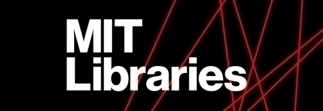Heather Yager leads Digital Library Services, which provides technology strategy and planning, software development, user engagement, and web services in support of the Libraries’ mission. Bibliotech asked her to share her perspective on the role of libraries in enabling computational research.
What is a “computational” library?
It’s all about taking what academic libraries do very well— curating and providing access to the information used during the course of research, and then stewarding and preserving the information generated by that research—and applying it to computational research. We’re working to ensure that MIT’s collections are accessible by machines, algorithms, applications, and people, and to support data-intensive research from start to finish, from data licensing and acquisition to data management to long-term data storage and access.
The MIT Libraries recently launched an API. Tell us about it.
Launched in March, our discovery index and public API (known as the TIMDEX, after MIT’s mascot) is our first step towards enabling computational access to the full suite of information and data managed by the Libraries. Currently, the TIMDEX indexes online journal subscriptions, MIT theses, and our full catalog of print and electronic books. The application programming interface, or API, provides the building blocks for using that information externally, in a piece of software, or as raw data. It’s our first experiment with building a library that functions as a programmable environment, where our user communities can design and code their own ways to access and analyze our collections, and the Libraries can join collaborative projects. See what the team is building at timdex.mit.edu.
Tell us about serving on the Working Group on College Infrastructure for the Schwarzman College of Computing. How do you see the Libraries playing a role?
Our working group was charged with examining how to ensure that departments have the information and resources they require to meet their computational needs, including methods of accessing and storing data. Our goal was to develop a common framework and language for thinking about computing across campus that ensures equitable access to resources and to build a common understanding of the needs associated with computational research. We spoke to each department, lab, and center across MIT to learn about their needs. Overwhelmingly, their responses indicated the need for expert consultation on data management and a framework for bringing data to campus and managing it equitably, securely, and responsibly. As for our role, I think Chris Bourg said it best in a recent talk at the Consorcio Madroño: “Librarians know better than most people how information is collected, assembled, and organized, so we know where things can go wrong. [We] can help ensure scholars are aware of the shortcomings of the data they use, and can help mitigate those impacts.” With a long history of providing information for use in research, managing it equitably, advocating for open scholarship, and taking the long view on durable information access, the Libraries are uniquely positioned to help build a computational research support model at scale at MIT.


